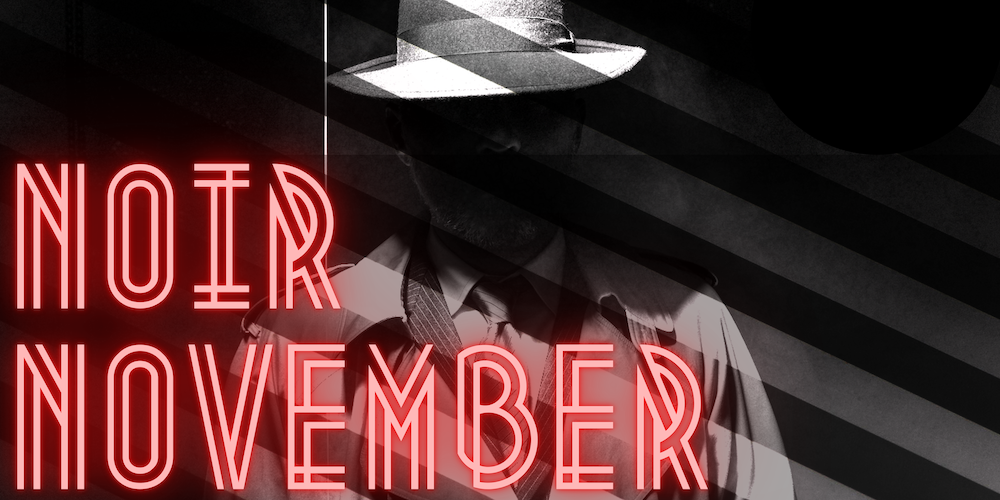Noir November: Chinatown
Written by Cameron Geiser
Every day for the month of November, Cameron Geiser is reviewing a noir film (classic or neo) for Noir November. Today covers the poster film for the neo noir movement, Chinatown.
Written by Robert Towne and directed by Roman Polanski, Chinatown is one of the best Neo-Noirs of all time, with possibly the best script in the business. This film is immaculate in its execution, and if you’re a student of cinema, it’s required viewing. Jack Nicholson stars as J. J. “Jake” Gittes, a private investigator who stumbles upon a bizarre case that constantly ratchets up mystery and intrigue at every opportunity. It’s a biting, cynical, and staggering Neo-Noir that stands tall in American cinema’s past.
Jake’s given a case early on in the film to investigate a potential affair between a married couple, as the first scene in the movie establishes, this is a common practice for private eyes. After he tails the husband, Hollis Mulwray (Darrell Zwerling), around town and takes notes on his activities, Jake believes he has enough evidence and brings the story to the newspapers, which ruins the man. However, after the story has been released, the real wife, Evelyn Mulwray (Faye Dunaway), arrives at Jake’s office informing the private eye that he can expect a lawsuit. Obviously, things are not as they seem.
Jake retraces Hollis’ steps and activities for clues until he arrives at the Los Angeles reservoir, where he meets with old police associates fishing a body out of the weeds. Curiously, despite the fact that the city was in a record drought, Hollis Mulwray had drowned to death. It’s fascinating how the script works in detailing the dangers of Capitalism burgeoning from a small, human, familial set of issues and broadening outward to how those same tendencies have negative outcomes for the broader community where profits and control are the first priorities. I’ll leave the exact details of the ending purposefully vague here, but it relates to the idea of Chinatown that the film evokes throughout the runtime. Jake used to work for the District Attorney in Chinatown before becoming a private eye with his own office, and it’s referenced several times as an indicator of the purposelessness of trying to change things for the better. Within the context of the film, Chinatown is a place where good intentions can have obscure consequences. While it’s technically a neighborhood, it’s also a space where human decision and choice are worth zilch.
Jack Nicholson in Chinatown.
Jack Nicholson as Jake Gittes is to the Neo-Noir private eye as Humphrey Bogart was to the classic Noir detective. While Nicholson took on the detective role built by Humphrey Bogart’s groundbreaking performances of such characters, Jack Nicholson’s take is thoroughly his own. The differences between them and their stories are stark. While Bogart’s characters were often broke and approaching alcoholism, Nicholson’s Gittes is well dressed, successful in his work, he’s amicable and even polite when unbothered. Granted, once things start getting slippery and his code of not working with clients that lie to him is broken- he can get volatile, but it’s a different character progression entirely.
While Polanski excels here in molding his style into the Noir story structure, it’s the seriousness of the characters and the overall tone across all aspects of the film that hold everything together and keep it far from clashing with more exploitative possibilities. From script to screen everything works in tandem to bring about a sense of undeniable chaos in the end. There’s even an appropriately appalling cameo role for filmmaker John Huston as Noah Cross, Jack Nicholson’s lunch scene with the aged villain is one for the ages. Huston only appears in three scenes in the film and yet his character casts a long shadow of evil over the sun drenched Los Angeles. Huston plays the character with an affable charm that elicits an unsettling nausea. He may be the villain of the film, but that doesn’t mean he isn’t willing to invite his nemesis to a decent lunch. He’s a folksy, roguish old codger who projects menace with a grin. Polanski himself also has a memorable cameo, far less time on screen than even Huston, but with a lasting impression as the thug that slashes Gittes nose resulting in that memorable bandage adorning his face for half the film. Chinatown is one of those films that perfectly merged a new approach within an old style, a New Hollywood update on a Classical Hollywood tale. Don’t miss this one.
Cameron Geiser is an avid consumer of films and books about filmmakers. He'll watch any film at least once, and can usually be spotted at the annual Traverse City Film Festival in Northern Michigan. He also writes about film over at www.spacecortezwrites.com.






